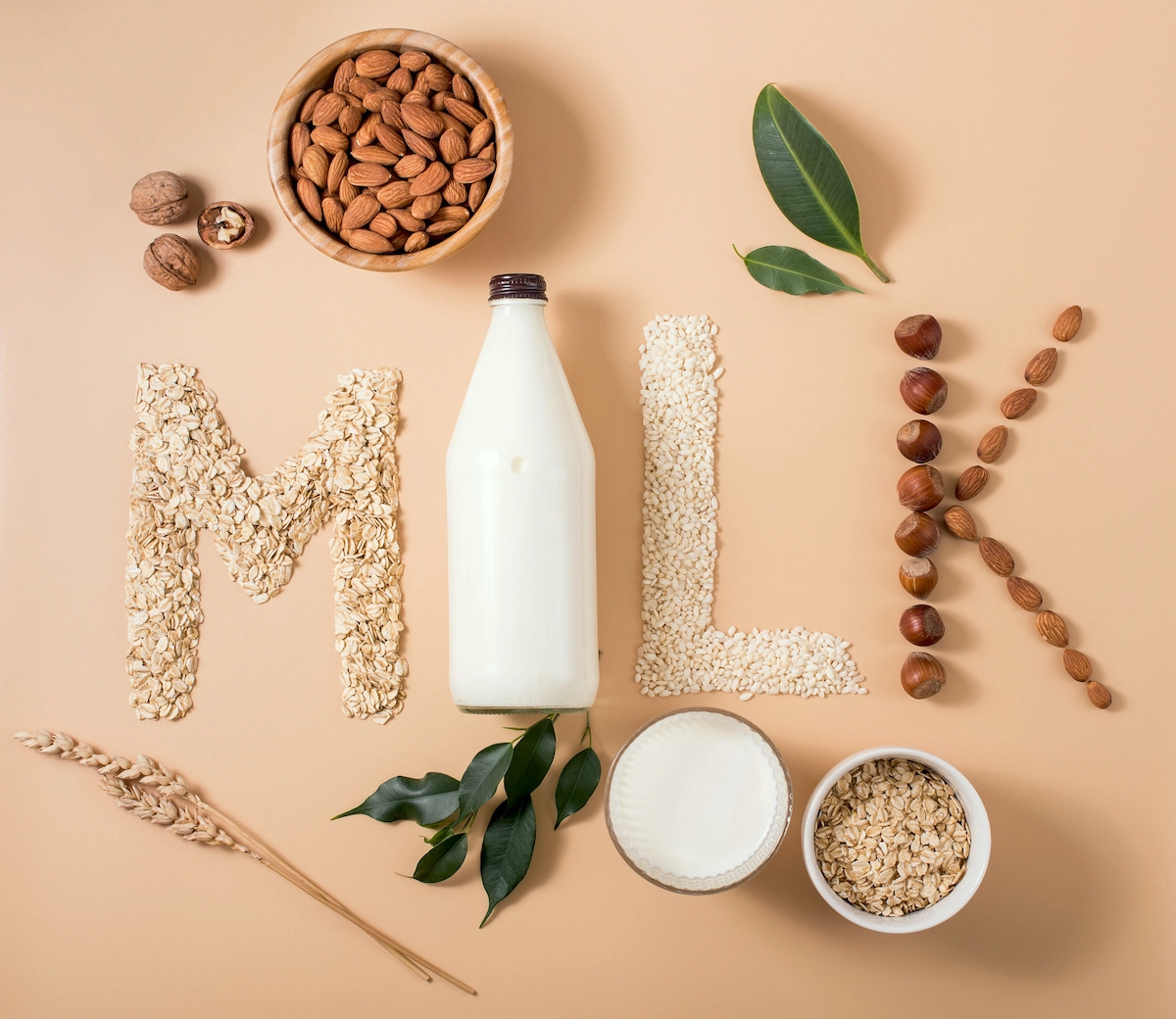
If you were around in the 1990s, you might remember the dozens of quirky magazine ads featuring A-list celebrities sporting thick milk mustaches. In the years since, milk substitutes have cropped up and surged in popularity—but whatever happened to good old-fashioned dairy milk?
These days, there’s a long-running debate about whether dairy is truly necessary in our diet. There are undeniable benefits in consuming cow’s milk and milk-based products, but some people also question whether the positives outweigh the negatives.
“Dietary trends have evolved over the years, and many people have moved toward Paleolithic and the ketogenic eating styles,” says registered dietitian Julia Zumpano, RD, LD. “Dairy isn’t a foundational part of either of those diets, which has led to some questions about whether dairy is safe and intended for human consumption.”
Here’s what milk can do for you and what to be on the lookout for.
Milk has 18 of 22 essential nutrients, making it a nutritional rock star and a simple and efficient way to get a long list of vitamins and minerals. It’s especially rich in calcium and protein, which are critical elements of a healthy diet.
Dairy milk is a good source of magnesium and vitamin A, which the U.S. Office of Disease Prevention and Health Promotion calls “shortfall nutrients”—nutrients that most Americans don’t get enough of. (Calcium is a shortfall nutrient, too.) It’s also a good source of:
- Phosphorus.
- Potassium.
- Vitamin B12.
- Vitamin K2.
- Zinc.
Plus, some milk is fortified with vitamin D, which helps your body better absorb calcium.
Benefits of dairy milk
So, what do the vitamin and nutrients in milk actually do for you?
“All of the structural components of our body, including muscles, tissues and bones, are maintained through our consumption of healthy vitamins, minerals, micronutrients and macronutrients,” Zumpano says. “They play a role in our overall health from head to toe.”
Drinking dairy milk helps to builds strong teeth and bones, and it helps your body maintain muscle movement, blood clotting and nerve signaling,” Zumpano explains. Strong bones can help fend off osteoporosis (loss of bone mass) and lower your risk of fractures.
Milk is a good source of high-quality protein, with about 8 grams of protein per cup. Your body needs protein in order to build and repair cells in your muscles, bones and skin. It’s also important for oxygenating your red blood cells, regulating your hormones, speeding up exercise recovery and more. Even better, milk is considered a complete protein, which means that it contains all nine essential amino acids that your body can’t produce on its own.
Some studies show that regularly drinking dairy can help manage diabetes (though, the greatest benefit comes from low-fat dairy, specifically yogurt).
Good for growing kids. . . tiny humans have big nutritional needs, and milk is full of so many important nutrients that it’s considered an important part of a child’s diet.
“We encourage milk drinking for young, growing children as they’re transitioning away from breast milk or formula,” Zumpano says. “It’s a foundational beverage for kids because it meets so many of their nutrient needs.”
The exception is children under age 2. Young children need the fat found in whole milk for brain growth and development.
“After age 2, you can choose to move to a lower-fat milk or continue with whole milk based on your child’s growth and development,” Zumpano adds.
Does organic matter?
Yep. Organic milk comes from cows that aren’t treated with antibiotics or growth hormones, and the cows that produce it must spend at least 30% of their time at pasture.
“Organic milk avoids the hormones and other unnecessary additives to dairy that we’re trying to avoid,” Zumpano says. “You can also find milk that isn’t organic but says on the label that it is sourced from cows that were not provided growth hormones.”
And here’s a nutritional bonus: Grass-fed cows are thought to make milk that is higher in omega-3 fatty acids, which support heart, brain and eye health, along with the health of your digestive and immune systems.
The cons of drinking too much dairy milk
Above all, it’s important to pay attention to how your body is reacting to the dairy you consume, including the types and the amounts.
Here’s a look at some of the potential cons and reasons to exercise caution when it comes to dairy:
Possible cancer risks
Milk consumption has been associated with an increased risk of some cancers, like prostate and endometrial, possibly from the growth hormones. The fat in dairy, contains estrogenic hormones. These hormones have been associated with an increased risk of prostate and endometrial cancer but with a lower risk of colorectal cancer.
On the other hand, cancer risks may also be increased by the use of synthetic growth hormones often given to cows. The best way to avoid these risks is to buy organically raised dairy products, as they come from cows that aren’t treated with hormones and antibiotics. If that’s not an option for you, whether due to cost or availability, it’s best to cut back on your overall consumption of milk and dairy products.
Increased risk of heart disease
Whole milk and 2% milk, in particular, are high in saturated fat. Consuming a lot of saturated fat leads to more plaque (cholesterol and fat) building up in the lining of your arteries, which makes it harder for blood to flow through your body. This increases your risk of heart disease.
What if you’re lactose intolerant?
For some people, drinking milk and eating dairy products can cause gastrointestinal issues like gas, bloating and indigestion. Those symptoms are much worse if you’re lactose intolerant.
“People who are lactose intolerant lack the enzyme lactase to break down that lactose that’s found in milk,” Zumpano explains. “Your body can’t digest milk very well because it can’t break down lactose or milk sugar.” Symptoms include:
- Bloating.
- Cramping.
- Diarrhea.
- Feeling overly full.
- Gas.
Some estimates say up to 70% of the world’s population may be lactose intolerant. But do you miss out on anything critical by not being able to drink milk or eat dairy products?
“If you don’t tolerate dairy, it’s probably best to just cut it out. You can gain the vitamins and minerals found in dairy from other foods, so as long as you replace dairy with other sources, you won’t be missing a big chunk of nutrition.
You can also take a lactase supplement before you eat dairy switch to lactose-free milk, or drink a dairy milk alternative. There are plenty of options at the market.
One more thing: Yogurt can be a good dietary swap, especially if you choose a version that’s plain and low in fat or and even lactose-free. It’s full of probiotics and healthy bacteria that can feed your gut.
# # #
Source: Excerpted and adapted from an article at











